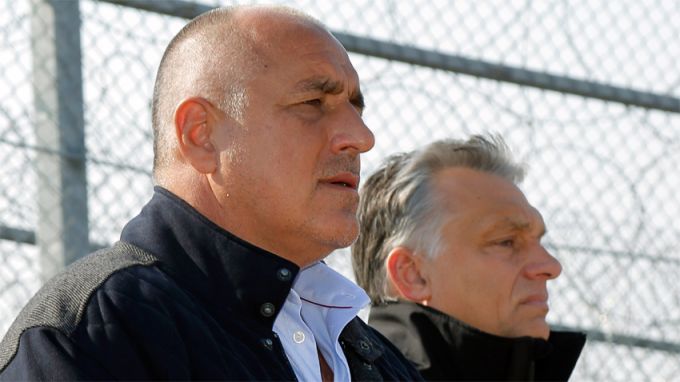
An event occurred on Tuesday and Wednesday that shed light on certain aspects of the most dire problem facing Europe and Bulgaria – migration. The prime ministers of Serbia and Hungary – Aleksander Vucic and Viktor Orban – paid a visit to this country. Orban and his Bulgarian counterpart Boyko Borissov inspected the Bulgarian-Turkish border and the country’s Black Sea aquatoria, with Viktor Orban conveying a message in this regard that was most categorical.
Orban was impressed by the way Bulgaria was guarding the EU’s external border and stated, rather emotionally, that it was there that the fate of Europe was being decided, not in Brussels. In his words, it was simple: if Turkey, which is not a member of the EU can be given 3 billion euro, then it is impossible that Bulgaria, which is, shall not be given 160 million. The 160 million in question is the sum PM Borissov will be demanding at the EU meeting in Bratislava on Friday, for coping with the migration crisis. He obtained Orban’s assurances that the Visegrad group would firmly support this demand and depending on the European support, would then decide what support Bulgaria should be given by the group.
Elated by Orban’s unequivocal words, the Bulgarian prime minister stated that on Friday it must clearly be said: Bulgaria will be helped with this sum of 160 million euro and only then should all procedures be broached, but that is what Bulgarians must hear. Because we have had enough of being told we are not alone, that Europe is there for us, that together we can do more, always together, onward, hurrah! Such a display of emotion is understandable in view of the fact that Bulgaria is alone in guarding the EU’s external border - the border with Turkey – a country that has accepted millions of refugees from Syria, but also migrants from Afghanistan and Iraq. That is why Borissov felt he had to explain that the fence put up along the border was not meant to be against Turkey but against the migrants, and lauded cooperation with the Turkish border authorities which has helped curb the migration flow. It may have been curbed, yet as it transpired recently, new locations are being looked for for the construction of refugee camps as the ones now in existence are full to capacity.
The fact that the President of Serbia Aleksander Vucic attended Tuesday’s meeting in Bourgas on the Black Sea, albeit for a brief few hours should be no surprise. Serbia lies along the so-called Balkan migration route towards central and Western Europe and even though it is not a member of the EU it is only logical that it should be consulted by its neighbours to the east and to the north on the migration issue at the summit in Bratislava. As a matter of fact Serbia tightened control along its border with Bulgaria and, as a result, quite a few illegal migrants were returned to this country.
In his capacity of envoy of the Visegrad group, Viktor Orban called on Brussels to render Bulgaria appreciable assistance for coping with the migration wave. Though indirectly, as something of a response to this, came the words by EU Commission President Juncker who called for the deployment of another 200 Frontex border guards as well as 50 vehicles along Bulgaria’s borders by the end of October. But will that be enough? In his annual State of the Union address at the European Parliament in Strasbourg, Juncker stated that ensuring Europe’s security was an absolute priority. Yet at the Orban-Borissov meeting it transpired that to ensure this kind of security will take very concrete financial and material resources. We shall have to wait for tomorrow’s meeting in Bratislava to see to what an extent Brussels subscribes to the Visegrad group’s views regarding Bulgaria.
English: Milena Daynova
"The last one to quit wins. If we believe and want democracy in Bulgaria to win..., we must persevere, even though it's discouraging," Izabela Shopova from Brisbane, Australia tells Radio Bulgaria Nearly 6,000 people identified themselves as..
On the threshold of the sixth early parliamentary elections in less than three years, the fatigue of the Bulgarian citizens from the administrative hopelessness is visible . This seems to be the case in the political arena as well - proof is the..
"We need unity and togetherness. For us, Bulgaria is our family, it is our home" - Zdravka Vladova-Momcheva, a Bulgarian living in Britain, told Radio Bulgaria. Ten days ago she was in Sofia to receive another award from the Executive Agency for..
Pro-Russian candidate takes lead in first round of presidential election in Romania In a shock development, independent far-right, pro-Russia..

+359 2 9336 661
